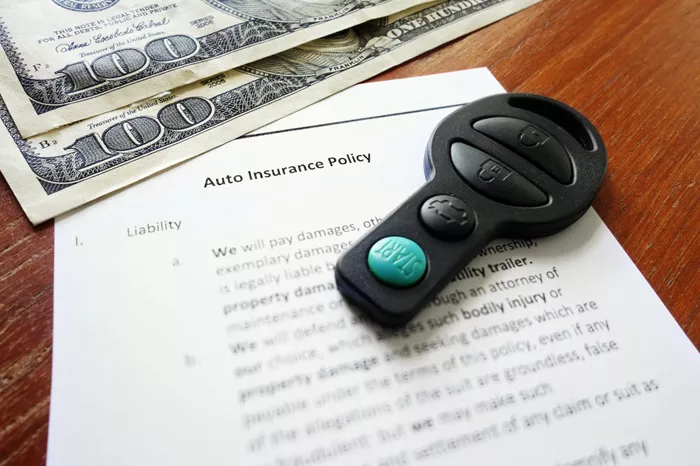As someone who’s been in the trenches of the automotive industry for decades, I often hear drivers grumble about car insurance payments. “Why do we have to shell out so much money every month?” they ask. It’s a fair question, but the answer goes far beyond legal requirements. Car insurance isn’t just an expense; it’s a financial safeguard, a legal obligation, and a key player in keeping our roads safe. Let’s break down the essential reasons why paying for car insurance is non-negotiable.
Financial Protection: A Safety Net Against Devastating Costs
Car accidents can happen in the blink of an eye, and the costs that follow can be astronomical. Imagine you’re involved in a major collision. Your vehicle is totaled, and you and the other driver are injured. Medical bills start piling up—hospital stays, surgeries, and rehabilitation can easily cost tens of thousands of dollars. Without insurance, you’d be responsible for covering all these expenses out of pocket.
Collision and comprehensive coverage are designed to protect your vehicle. Collision pays for damage to your car in an accident, while comprehensive covers non-accident incidents like theft, vandalism, or damage from natural disasters. Liability insurance, on the other hand, steps in when you’re at fault in an accident. It pays for the other party’s property damage and medical bills. Without this coverage, a single accident could drain your savings and leave you in financial ruin.
Even minor accidents can be costly. Modern cars are packed with advanced technology, from sophisticated safety systems to high-tech infotainment units. Fixing a small fender bender might involve replacing sensors, recalibrating cameras, or repairing complex electronics, all of which can quickly add up to thousands of dollars. Car insurance spreads these risks and ensures you don’t bear the full brunt of unexpected costs.
Legal Requirements: Staying on the Right Side of the Law
In almost every region, driving without car insurance is illegal, and the penalties are severe. Governments enforce these laws to protect all road users. If you’re caught driving uninsured, you could face hefty fines, license suspension, or even vehicle impoundment. In some cases, repeat offenders may end up in court or serve jail time.
These legal requirements exist for a good reason. When you get behind the wheel, you share the road with countless other people. Insurance ensures that if an accident occurs, there’s a system in place to compensate those who are injured or have their property damaged. By making insurance mandatory, governments create a safer and more accountable driving environment for everyone.
Protecting Your Credit and Future Finances
An uninsured accident can have long-term consequences for your financial health. If you’re unable to pay for damages or medical expenses, the other party may sue you. A lawsuit can lead to wage garnishment, liens on your property, and a significant drop in your credit score. A damaged credit score makes it harder to get loans, rent an apartment, or even secure certain jobs.
Insurance companies also use your insurance history to determine your premiums. If you’ve driven without insurance in the past, future insurers will consider you a high-risk customer and charge you higher rates. By paying for car insurance regularly, you protect your credit score and keep your insurance costs manageable in the long run.
Shared Risk: How Insurance Works for Everyone
Car insurance operates on the principle of shared risk. Think of it like a community pool of money. Thousands of drivers pay premiums into this pool every month. When an accident occurs, funds from the pool are used to cover the costs. Since not every driver will have an accident at the same time, the risk is spread out among a large group.
This system allows insurers to offer coverage at an affordable price. For example, if you were to pay for all potential accident costs on your own, it would be prohibitively expensive. But by sharing the risk with other drivers, you can pay a reasonable premium and still be protected when the unexpected happens.
Additional Benefits: More Than Just Accident Coverage
Car insurance offers a range of valuable extras that go beyond basic accident protection. Roadside assistance is a common add-on. Whether you have a flat tire, run out of gas, or your car breaks down, roadside assistance will send help to get you back on the road. Rental reimbursement is another useful feature. If your car is in the shop for repairs after an accident, your insurance can cover the cost of renting a vehicle, so you can continue with your daily life without disruption.
Personal injury protection (PIP) covers medical expenses and lost wages for you and your passengers, regardless of who is at fault in an accident. These additional benefits make car insurance a comprehensive safety net for all sorts of unexpected situations.
Making the Most of Your Car Insurance Payment
Shop Around: Don’t settle for the first insurance quote you get. Different companies offer different rates and coverage options. Take the time to compare quotes from multiple providers to find the best deal.
Understand Your Policy: Read the fine print of your insurance policy carefully. Know what’s covered, what the deductibles are, and what the exclusions are. This will help you avoid surprises when you need to file a claim.
Bundle Policies: Many insurance companies offer discounts if you bundle your car insurance with other policies, like home or renters insurance. This can help you save money on your overall insurance costs.
Conclusion
Paying for car insurance might feel like an annoyance, but it’s a small price to pay for the peace of mind and financial security it provides. It protects you from crippling expenses, keeps you on the right side of the law, safeguards your credit, and offers valuable additional benefits. The next time you grumble about your insurance premium, remember what’s at stake. Investing in car insurance is investing in your future and the safety of everyone on the road.


